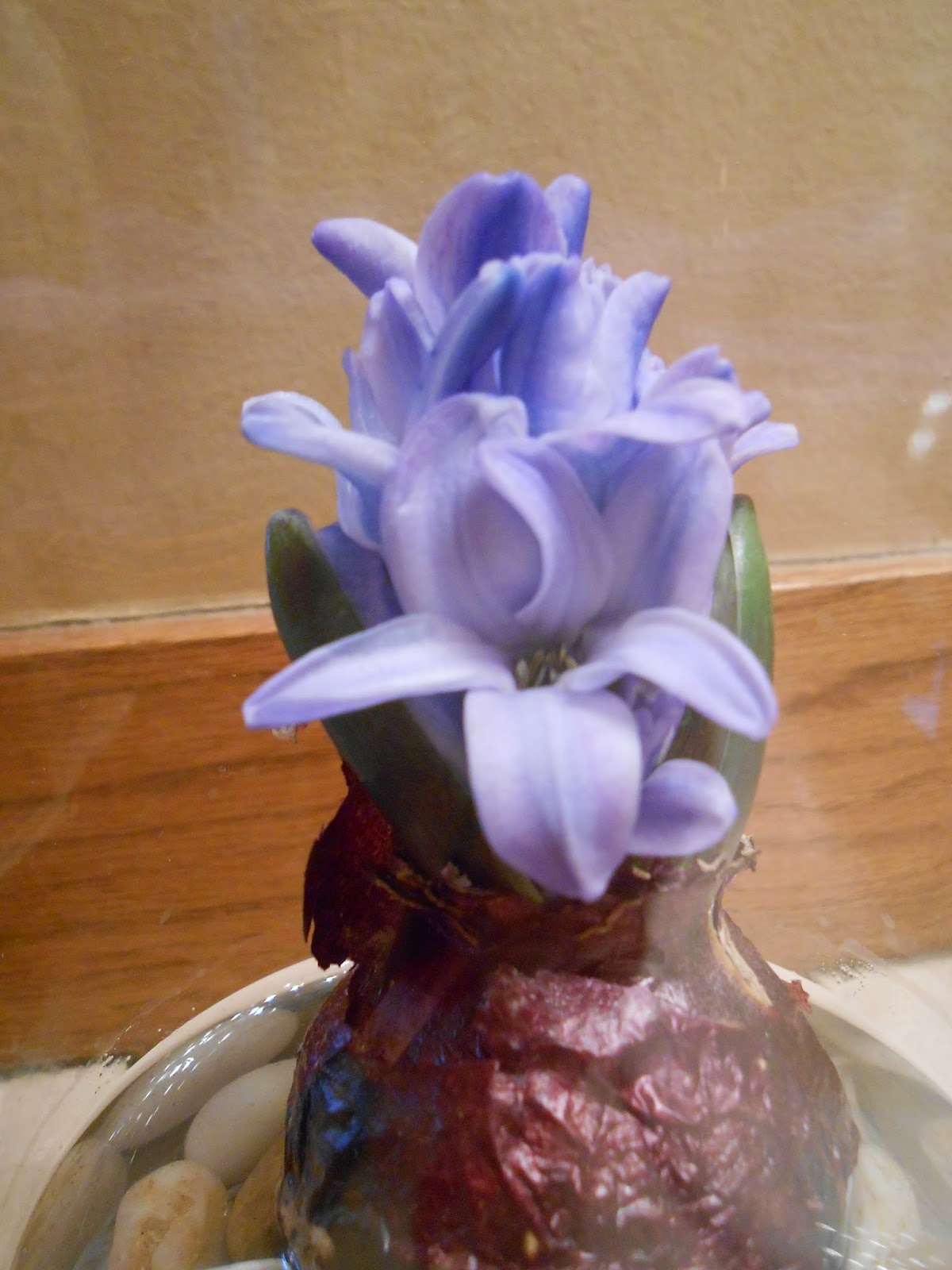I wanted the ladies to have a take-away gift to remember the event, so I circulated a basket full of daffodil and hyacinth bulbs. The bulbs represented each woman. Her life. Her uniqueness. Her beauty. Even though each bulb looked lifeless, God was waiting, ready to bring new life.
Here is what my bulb looked like:
At the end of the evening, a couple of the ladies shared how-to instructions on forcing the bulbs to bloom. The steps were simple enough. Cover the bottom of a vase with stones, place the bulb on the stones, and fill with water to just above the bottom of the bulb.
Plain. Simple. Easy. Forced.
In mid-December, my bulb looked like this:
I watched with interest as my bulb's roots shot like spaghetti through the stones. Dozens of long shoots pushed their way under and around the stones. The bulb's top transformed into a tough, green sprout. And then, slightly more than a month later, the lavender flowers appeared and grew full.
In mid-January, this is what the flowering bulb looked like:
While the hyacinth added a burst of color to my kitchen and its scent was delightful, I realized that the stony confines and lack of soil had severely stunted the growth and life span of the plant. To realize its intended growth, this hyacinth bulb obviously needed the nutrients of soil and God's earth to grow to its full potential.
Hmm.
Jesus talked about this same need in our roots of faith with his parable of the sower and the seeds. From Mark 4 (NIV), it goes like this:
3 “Listen! A farmer went out to sow his seed. 4 As he was scattering the seed, some fell along the path, and the birds came and ate it up. 5 Some fell on rocky places, where it did not have much soil. It sprang up quickly, because the soil was shallow. 6 But when the sun came up, the plants were scorched, and they withered because they had no root. 7 Other seed fell among thorns, which grew up and choked the plants, so that they did not bear grain. 8 Still other seed fell on good soil. It came up, grew and produced a crop, some multiplying thirty, some sixty, some a hundred times.”
9 Then Jesus said, “Whoever has ears to hear, let them hear.”
And then Jesus explains the meaning:
14 The farmer sows the word. 15 Some people are like seed along the path, where the word is sown. As soon as they hear it, Satan comes and takes away the word that was sown in them. 16 Others, like seed sown on rocky places, hear the word and at once receive it with joy. 17 But since they have no root, they last only a short time. When trouble or persecution comes because of the word, they quickly fall away. 18 Still others, like seed sown among thorns, hear the word; 19 but the worries of this life, the deceitfulness of wealth and the desires for other things come in and choke the word, making it unfruitful. 20 Others, like seed sown on good soil, hear the word, accept it, and produce a crop—some thirty, some sixty, some a hundred times what was sown.”
This spring, I'll plant my hyacinth bulb where it will thrive: in the soil of my garden. In the meantime, I'll enjoy it's fading flower and be reminded of God and the way he generously sows his seed into my heart of life.
Where are you planted?




